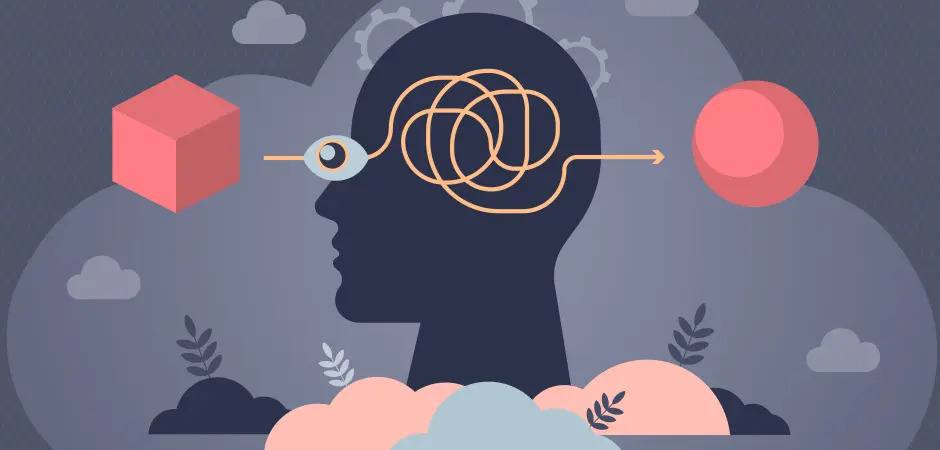What is impairment of well-being?

The concept of impairment of well-being is a critical topic in psychology and cognitive science, influencing how individuals perceive and interact with the world. Understanding what is impairment of well-being helps to elucidate the factors that hinder one’s quality of life, mental health, and cognitive functioning. This term refers to any form of disruption that affects a person’s mental, emotional, physical, or social state, making it difficult for them to live a fulfilling, healthy life.
This article explores what is impairment of well-being by examining it from psychological and cognitive perspectives. We’ll consider how mental disorders, cognitive deficits, and life stressors impair well-being, along with the profound impact this can have on both the mind and body. Through an analysis of the mechanisms behind impairment, we can better understand the interplay between cognition, emotion, and well-being.
Psychological Perspective on Well-Being
Psychological well-being encompasses an individual’s emotional states, thought patterns, behaviors, and social interactions. Positive psychological well-being is typically characterized by contentment, resilience, optimism, and the capacity to manage stress. However, understanding what is impairment of well-being requires examining when this balance is disrupted.
When a person experiences prolonged emotional distress, anxiety, depression, or trauma, their well-being can be severely impaired. Mental health disorders are among the most common contributors to impairment. Depression, for example, can sap motivation, create feelings of worthlessness, and even lead to physical symptoms such as fatigue or chronic pain, all of which represent clear impairments of well-being.
Anxiety disorders also provide insight into what is impairment of well-being. Those with anxiety may experience overwhelming worry or fear that interferes with daily life. They might avoid social situations, suffer from panic attacks, or obsess over potential negative outcomes. In these cases, anxiety becomes an obstacle to personal happiness, emotional regulation, and social engagement.
Cognitive Perspective on Well-Being
Cognition refers to mental processes such as memory, attention, learning, and decision-making. When discussing what is impairment of well-being, it’s essential to consider cognitive impairments that may hinder an individual’s mental functioning. Cognitive impairments can result from various causes, including neurodegenerative diseases, brain injuries, substance abuse, or developmental disorders.
One example of cognitive impairment affecting well-being is Alzheimer’s disease. This neurodegenerative condition leads to memory loss, disorientation, and difficulty with reasoning and problem-solving. For individuals suffering from Alzheimer’s, the cognitive decline drastically impacts their well-being, making it challenging to maintain independence, relationships, and self-esteem.
Similarly, impairments in executive functioning, such as planning and decision-making, can greatly reduce well-being. Executive functions are critical for self-regulation, goal-setting, and time management. Without these abilities, individuals may struggle to meet daily responsibilities or cope with unexpected challenges, contributing to frustration and diminished life satisfaction.
Furthermore, individuals who suffer from learning disabilities or cognitive developmental disorders, like ADHD, often face academic and occupational challenges that impair their well-being. The inability to concentrate or process information quickly can result in feelings of inadequacy and stress, leading to lowered self-esteem and mental health issues. In this sense, cognitive impairments contribute directly to what is impairment of well-being.
Stress and Impairment of Well-Being

One of the primary factors influencing what is impairment of well-being is stress. Prolonged exposure to stress is harmful to both mental and cognitive health, contributing to various forms of impairment. Stress impacts emotional regulation, cognitive functioning, and physical health, all of which are essential components of overall well-being.
Chronic stress can lead to burnout, where individuals feel mentally, physically, and emotionally exhausted. Burnout impairs well-being by reducing motivation, increasing irritability, and diminishing an individual’s sense of personal accomplishment. Additionally, stress affects the brain’s cognitive abilities. Prolonged stress elevates cortisol levels, which can damage the hippocampus and impair memory and learning. Consequently, understanding what is impairment of well-being necessitates addressing stress as a significant factor.
In extreme cases, stress can also lead to post-traumatic stress disorder (PTSD), a debilitating condition that impairs well-being by trapping individuals in a cycle of hypervigilance, intrusive thoughts, and emotional numbing. For those suffering from PTSD, the impairment of well-being is evident in their disrupted sleep patterns, anxiety, and difficulty maintaining relationships.
Cognitive Dissonance and Impairment of Well-Being

Cognitive dissonance plays an essential role in understanding what is impairment of well-being. Cognitive dissonance occurs when there is a conflict between a person’s beliefs, values, or behaviors. This internal conflict creates psychological discomfort, and people are motivated to reduce it by altering their thoughts or actions. However, unresolved cognitive dissonance can lead to a persistent state of unease, which may impair well-being.
For example, someone who values health but consistently engages in unhealthy behaviors like smoking may experience cognitive dissonance. If they are unable to reconcile this discrepancy, it could lead to stress, guilt, or even anxiety, all of which represent impairments to their well-being. Over time, cognitive dissonance can compound, leading to mental health issues that impair the individual’s overall sense of happiness and fulfillment.
Social and Emotional Impacts on Well-Being

Another important element in understanding what is impairment of well-being is the social and emotional impact. Social relationships and emotional health are deeply interconnected. A lack of positive relationships or an inability to regulate emotions can drastically impair well-being.
Social isolation, for example, can have profound psychological effects. Studies show that people who are socially isolated experience higher rates of depression, anxiety, and cognitive decline. Loneliness can lead to rumination, where individuals dwell on negative thoughts, compounding their sense of disconnection and impairing their well-being.
Additionally, emotional dysregulation contributes significantly to what is impairment of well-being. Emotional dysregulation refers to the inability to manage emotions appropriately. Individuals who struggle with controlling anger, sadness, or fear may find their relationships strained and their mental health deteriorating. Conditions like borderline personality disorder (BPD), where emotional dysregulation is a core symptom, demonstrate how unmanaged emotions can impair well-being and hinder the ability to maintain a fulfilling life.
Impact of Cognitive Biases on Well-Being

Cognitive biases—systematic errors in thinking that influence decision-making—can also provide insights into what is impairment of well-being. These biases can distort perception and behavior, leading to impaired well-being by fostering negative thought patterns and maladaptive behaviors.
One such bias is negativity bias, which causes people to focus more on negative events or outcomes than positive ones. Individuals with negativity bias may ruminate on past failures or future worries, ignoring their successes and positive experiences. This distorted view of reality impairs well-being by contributing to feelings of hopelessness and dissatisfaction.
Another cognitive bias that impairs well-being is the confirmation bias, where individuals seek out information that supports their pre-existing beliefs and disregard evidence to the contrary. For those with negative self-views or depressive tendencies, confirmation bias can reinforce negative thoughts, such as “I’m not good enough” or “nothing ever goes right for me.” This can trap individuals in a cycle of pessimism, further impairing their well-being.
Sleep and Impairment of Well-Being

Sleep is a fundamental aspect of both psychological and cognitive health, and disruptions to sleep patterns often result in impairment of well-being. Sleep deprivation or poor sleep quality is linked to cognitive impairments, such as reduced memory, impaired attention, and difficulty concentrating. On the psychological side, a lack of sleep contributes to irritability, mood swings, anxiety, and depression.
Understanding what is impairment of well-being from the perspective of sleep disruptions is crucial for addressing mental and cognitive health. Sleep disorders like insomnia or sleep apnea can exacerbate stress, lower resilience, and impair emotional regulation, leading to a vicious cycle of poor mental health and declining well-being.
Impact of Substance Use on Well-Being

Substance use, whether through drugs or alcohol, can impair well-being by affecting both the brain and body. Chronic substance use often leads to addiction, which compromises cognitive functioning, decision-making, and emotional regulation. Addiction impairs well-being by isolating individuals from their social support systems, diminishing their physical health, and increasing the risk of mental health disorders like depression and anxiety.
For example, prolonged alcohol abuse can impair cognitive functions such as memory and attention, leading to issues at work or in relationships. Additionally, alcohol impairs emotional regulation, often resulting in aggressive or impulsive behaviors that strain personal relationships. Similarly, drug addiction can hijack the brain’s reward system, leading individuals to prioritize drug use over other meaningful life activities, which impairs overall well-being.
Neuroplasticity and Recovery from Impairment of Well-Being
While impairments to well-being can be debilitating, neuroplasticity offers hope for recovery. Neuroplasticity refers to the brain’s ability to reorganize itself by forming new neural connections throughout life. This means that even in cases where well-being has been impaired due to cognitive or psychological disorders, the brain has the capacity to adapt and recover.
For example, individuals recovering from depression often undergo cognitive-behavioral therapy (CBT), which helps to retrain the brain’s thought patterns and reduce the impairment of well-being. Similarly, mindfulness practices and meditation have been shown to enhance emotional regulation and increase the brain’s resilience to stress, offering a path to improved well-being.
Understanding what is impairment of well-being includes recognizing that the brain’s capacity for growth and healing can play a significant role in overcoming psychological and cognitive impairments. Through therapeutic interventions and lifestyle changes, individuals can work toward restoring their well-being.
Conclusion
In summary, understanding what is impairment of well-being involves recognizing the multitude of factors that can disrupt an individual’s mental, emotional, and cognitive functioning. Impairment of well-being manifests through mental health disorders, cognitive deficits, stress, and emotional dysregulation, all of which can drastically reduce a person’s quality of life.
From a psychological perspective, emotional issues like anxiety, depression, and stress can impair well-being by creating mental and emotional imbalances. From a cognitive viewpoint, impairments in memory, attention, and decision-making hinder daily functioning and contribute to negative mental states. Social and environmental factors, such as isolation, substance abuse, and sleep deprivation, also play crucial roles in impairing well-being.
However, the brain’s inherent capacity for neuroplasticity suggests that impairments to well-being can often be addressed through therapeutic and cognitive interventions. By understanding what is impairment of well-being, individuals and professionals can develop more effective strategies to foster mental resilience, improve cognitive functioning, and ultimately restore well-being.
